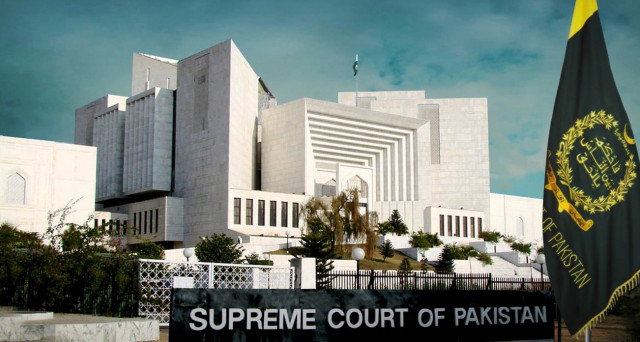Govt counsel warns of annulment risks

However, the apex court observed that the new method adopted in the 18th amendment for the appointment of judges to the superior courts was not part of the basic structure of the constitution.
“If the parliament is active in amending the constitution, so [is] the Supreme Court,” Chief Justice Iftikhar Muhammad Chaudhry remarked while heading a 17-member bench hearing the petitions against the 18th amendment.
Justice Khalil-ur-Rehman Ramday also warned the federation’s counsel, Wasim Sajjad, that anarchy will prevail if courts are denied the right of a judicial review of the amendment. Wasim Sajjad, in light of Indian courts’ judgments, argued that the constitution could not be reviewed under Article 2-A, which relates to the Objectives Resolution.
Responding to this, Justice Ramday observed that article 2-A stipulates the concept of the basic structure of the constitution.
The chief justice said that the Objectives Resolution only forms the basis of the Constitution, but the entire 1973 Constitution cannot be judged under the same resolution.
To this, Sajjad said that, “It is a political question to delineate the features of the constitution and the Parliament is authorised to settle it – deciding which part of the constitution is non-amendable.”
“The recommendations set by the Parliamentary Committee on Constitutional Reforms will not affect the procedure of the appointments of judges in the superior courts,” Sajjad stressed.
Justice Ramday responded to Sajjad: “You are counseling for legislators to embark on the wrong [path] and for people to take to the streets.”
On this point, the chief justice also supported Justice Ramday, saying: “We have high respect for parliament, and the Supreme Court has always observed the arguments in light of rules set by the constitution of the country.”
He added that the independence of the judiciary does not mean saving the jobs of the judges; instead, it indicates the people’s trust in the judiciary.
Earlier, Sajjad strongly defended the role of parliament, saying that the makers of the 1973 Constitution, the Objectives Resolution and those who launched the movement for Pakistan were not intellectuals or PhDs.
“The legislators were conscious of the fact that the appointment of judges also relates to the independence of judiciary,” Sajjad argued.
Meanwhile, Justice Jawad S Khawaja asked Sajjad if he could juxtapose Article 2-A with the preamble of the constitution, and his stance on the preamble and its importance.
Sajjad replied that the preamble has its own significance, but not as part of the constitution.
“Two provisions of the constitution cannot be enforced together; when they exist together then you have to harmonise them,” he said.
He also said that the SC has vast power and it has to protect each and every word of the constitution. “We should not be taken in by the Indian system as well,” he said.
Justice Asif Saeed Khosa said in his remarks that if the purpose is the independence of the judiciary then the procedure of appointing judges should not be a part of the basic body of the constitution.
The hearing was adjourned to Wednesday (today).
Published in The Express Tribune, July 28th, 2010.



















COMMENTS
Comments are moderated and generally will be posted if they are on-topic and not abusive.
For more information, please see our Comments FAQ